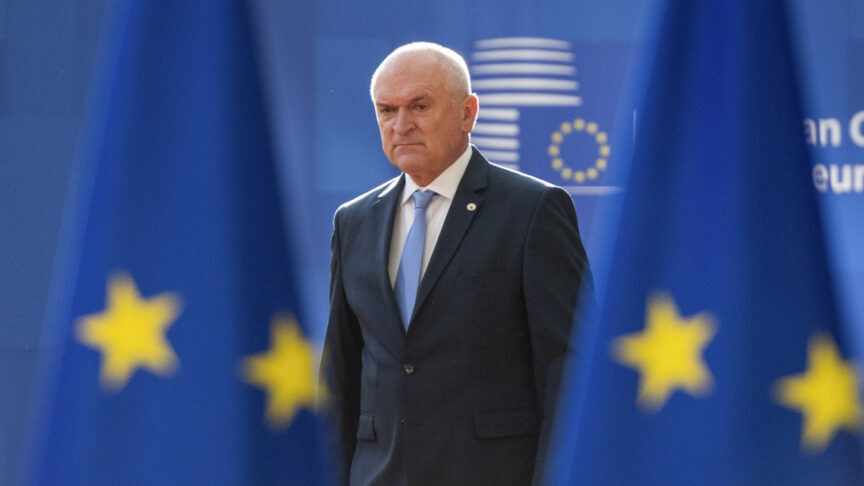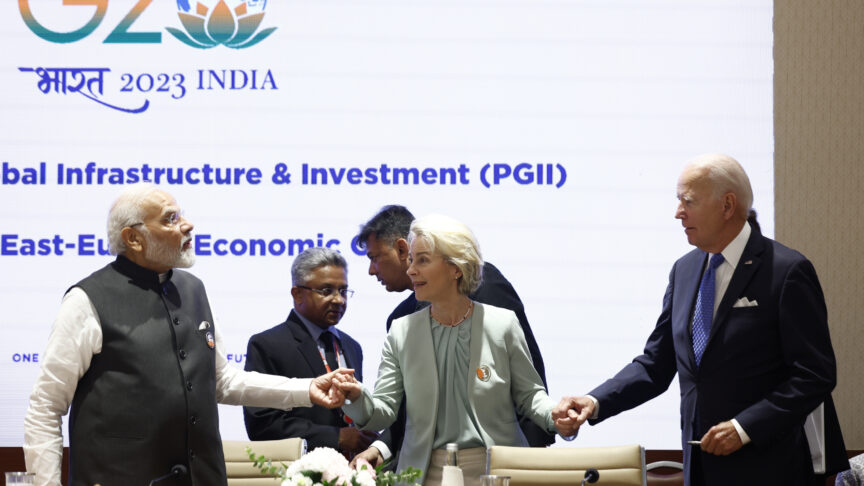Iraq after Bush
The most important question of the US presidential campaign is whether we can hope for a rejection of ‘democratic imperialism’ after an illegal war that made both the US and the world less safe
As we enter the sixth year of the trillion-dollar war in Iraq – with tens of thousands of Western soldiers fighting and many dying in Muslim lands, with some 1000 new Israeli homes being planned on occupied Palestinian territory after Annapolis, the dollar falling and oil prices at an all-time high – all eyes are set on the American elections.
Around the globe, you hear the same questions: will we see more of the same in 2009? Can we hope for a rejection of “democratic imperialism”, after an illegal war that U.S. Lieutenant General Ricardo Sanchez called “a nightmare without an end in sight”, and that made both the U.S. and the world less safe?
Swedish Prime Minister Olof Palme, for whom I worked, was a warm admirer of America. He strongly opposed the war in Vietnam but insisted that we needed to prepare for the post-Vietnam era. His ambition was helped by the United States at the time. Together we heard Vice President Walter Mondale, while on an official visit to Sweden in 1979, publicly state about Vietnam: “You were right and we were wrong”.
Before that, in January 1973, Secretary of State William Rogers, in a spirit of responsibility and realism, had signed the Agreement on Ending the War and Restoring Peace in Vietnam, in Paris. Article 21 stipulated: The United States anticipates that this Agreement will usher in an era of reconciliation with the Democratic Republic of Viet-Nam as with all the peoples of Indochina.
In pursuance of its traditional policy, the United States will contribute to healing the wounds of war and to post-war reconstruction of the Democratic Republic of Viet-Nam and throughout Indochina.
Maybe we cannot expect such a (much needed) declaration of remorse from the new President. But in these turbulent times, we must now prepare for the post-Iraq era. We must get our agenda right, create a new commitment on both sides of the Atlantic, and focus on collective solutions to global problems.
Change must begin in Washington. We need answers about U.S. ulterior goals and the role of the United Nations in Iraq. What will happen with the statement signed November 26 by President Bush and Iraqi Prime Minister Maliki, which seemed to commit the U.S. to a long-term military presence in the country and aim at replacing the existing Security Council mandate with “a bilateral setting”.
Democrats have objected to the declaration. But following the volatile election campaign, many Europeans wonder if the Republican-started war could develop into an American war, with U.S. bases and thousands of soldiers and even more back-up personnel in Iraq, including the infamous private contractors.
Such a scenario would be applauded by the authors of the Project for the New American Century who in 1988 asked for “a strong military presence…in order to defend our vital interests in the Persian Gulf “. Most of the Project’s demands would then be met: Saddam Hussein gone, an American beachhead established in the region close to the oil fields, Israel allegedly safer, and no hassle with UN resolutions.
But public opinion in Europe would not accept it, nor would the E.U. be able to accompany the U.S in Iraq, even if some European leaders express hope about a new beginning next January. A return to U.S. respect for the UN charter and the Geneva conventions is therefore called for.
Without such clarifications, especially on the Republican side, the U.S. stand could be interpreted as a “bad cop, good cop” arrangement by outside observers. We see the President preparing for a unilateral agenda with Iraq and vetoing a bill that would have explicitly prohibited the CIA from water-boarding, while the Republican “good cop”, Senator McCain, remains silent.
The Senator argued – in Foreign Affairs (December 2007) – for a revitalizing of the transatlantic partnership. He saw the future of the partnership in “developing a common energy policy, creating a transatlantic common market tying our economies more closely together, and institutionalizing our cooperation on issues such as climate change, foreign assistance, and democracy promotion”.
All these are noble goals but the E.U. is already deeply involved in these areas, and the Senator’s determination to go for a military solution in Iraq will not promote deeper cooperation.
In Iraq there will be no sustainable or legitimate solution without a UN resolution. But a vague UN resolution could become a poisoned chalice for the world organization. A prominent US scholar told European diplomats in August 2002 that the Bush administration’s alleged plan for Iraq was: “Go in, get rid of (Saddam), get out, and let the UN and EU muck around”.
There is distrust, ignorance, and prejudice to dispel on both sides of the Atlantic. New confidence and genuine partnership are badly needed. There will be no stability in the world – or at the UN – without the U.S. Nor will the U.S. find lasting security without the world. Unilateralism equals collateral damage, multilateralism collateral benefits.
Pierre Schori is Director General of FRIDE and a founding member of ECFR. His book ‘Dragon´s Teeth- September 11, the Iraq War and the world after Bush’ has just been published in Sweden.
The European Council on Foreign Relations does not take collective positions. ECFR publications only represent the views of their individual authors.


